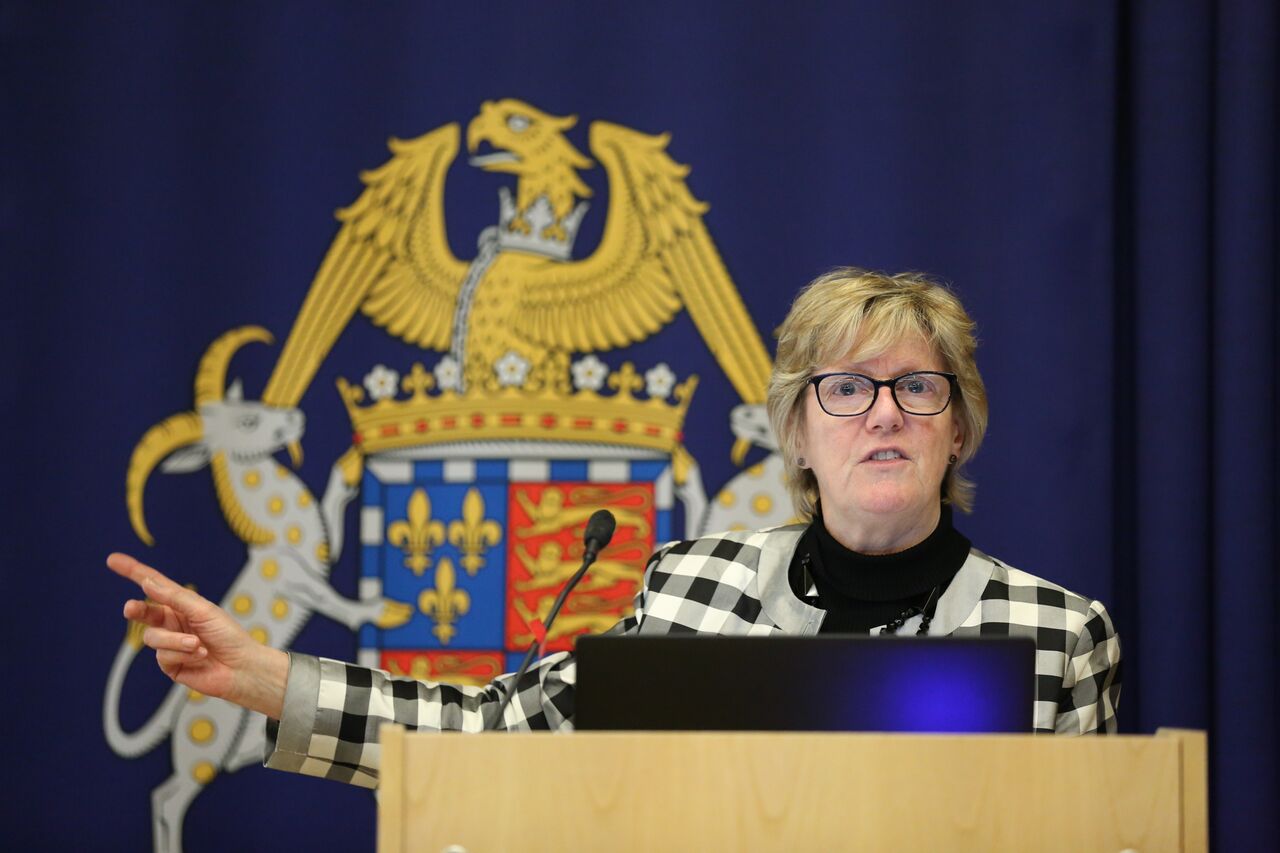
Professor Dame Sally Davies gave this year's Gates Cambridge Annual Lecture on antimicrobial resistance.
The world is at a crossroads with regard to the threat represented by antimicrobial resistance [AMR], which in the long term could kill more people than climate change, the Chief Medical Officer for England warned in this year’s Gates Cambridge Annual Lecture.
Speaking on Tuesday at St John’s College, Professor Dame Sally Davies said a report by economist Jim O’Neill showed that AMR could account for 10 million deaths by 2050, more than cancer. Currently around 25,000 deaths a year in Europe are the result of AMR.
Dame Sally’s lecture, Antimicrobial resistance: a cause for collaboration, outlined the challenges presented by what she called a “complex, wicked issue”. AMR occurs when bacteria, fungi, viruses and other parasites do not respond to the drugs available. The most acute problem at present is with bacteria, but resistance in fungi will be the next problem, she said.
She described how AMR spreads and how easily it reproduces, spreading even between species, for instance, from resistant E.coli to Salmonella.
The problem is caused by overuse of antibiotics in medicine and farming and a lack of investment in research, meaning there have been no new antibiotic classes since the late 1980s. She said the spread of AMR is facilitated by international travel and poor hygiene. “We have been using antibiotics like Smarties in agriculture and medicine,” said Dame Sally.
She described how antibiotics – and resistant genes – are present in every part of our environment – their use in fish farming and the fact that humans excrete 90% of antibiotics meant they got into rivers, seas and soil. They are sprayed on the crops we eat; they are ingested by wildlife and pets. Sewage in rivers and seas are an important route of transmission. A 2014 study by Exeter University showed a drug-resistant strain of E.coli was swallowed in 6.3m water sports sessions.
The West are the biggest consumers of antibiotics. One in four prescriptions for antibiotics in England are unnecessary, said Dame Sally. Other problems included the fact that many antibiotics in low income countries are counterfeit, creating an environment where resistance could multiply. If we reached a post-antibiotic age, people would die routinely in surgery and from infections.
However, she added that the misuse of antibiotics in medicine is dwarfed by their use in livestock, where they are used mainly for growth promotion. Research showed that banning antibiotics as growth promoters led to a big drop in AMR and Dame Sally mentioned attempts to get consumers to champion antibiotic-free meat.
She emphasised that AMR is a global problem which required a global solution. Part of that was how to encourage universities to do the basic microbiology research necessary and incentivise drugs companies to invest in bringing new classes of antibiotics onto the market, given that there is little profit to make from them as they are fairly cheap to buy.
Having outlined the complexity of the issue, Dame Sally described what policy makers were doing about it and said the politicians she had spoken to grasped the importance of addressing it. An independent review for the UK government outlined a five-year strategy starting in 2011 which included the need for greater promotion of hygiene, more research to gather better data on AMR, the setting up of a global innovation fund for the development of new antibiotics and the creation of a global coalition for action. A £265m Fleming Fund had been created to increase surveillance in developing countries.
Dame Sally outlined international actions, including the launch next week of the UN Interagency Coordination Group which will look at how to ensure policy is moving in the right direction across the world.
Next steps include work on a new national strategy for the UK from 2019 and a UN Declaration on AMR.
“I am optimistic that we can do something here. We can make a difference,” said Dame Sally, adding that it is important that high income countries paid most of the innovation fund’s bill and assured those in lower income countries that new drugs would be affordable.
She finished her lecture saying: “We owe it to our grandchildren to do this. If not, their lives will not be as long as ours.”
*Picture credit: Kip Loades.












